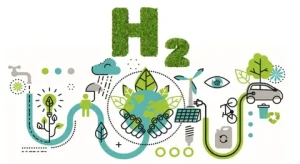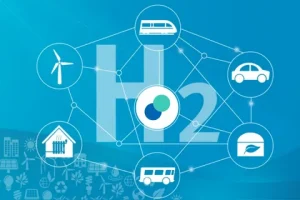The hydrogen generation market is experiencing rapid growth and is expected to continue to do so in the coming years. Hydrogen is considered a clean and renewable energy source that can be used for a variety of applications, including fuel cells, transportation, power generation, and industrial processes. The growing demand for clean energy and the increasing focus on reducing carbon emissions are driving the demand for hydrogen generation. Additionally, the development of new technologies, such as water electrolysis and renewable energy sources, is making hydrogen generation more efficient and cost-effective.

According To Fact.MR, The global hydrogen generation market reached a value of US$ 139.10 Billion in 2022 and is expected to reach a market value of US$ 273.63 Billion by registering a CAGR of 7% during the forecast period 2022-2032.
Furthermore, the use of hydrogen as a fuel is becoming increasingly popular in the transportation sector. Hydrogen fuel cells are being developed as an alternative to traditional fossil fuel-powered engines, as they offer several advantages, including zero emissions, high energy density, and fast refueling times.
Download Sample Copy of This Report: https://www.factmr.com/connectus/sample?flag=S&rep_id=4686
The adoption of hydrogen fuel cells in the automotive industry is driving the demand for hydrogen generation, as it requires a reliable and sustainable source of hydrogen fuel. Overall, the hydrogen generation market is expected to continue to experience significant growth due to the increasing demand for clean energy and the growing adoption of hydrogen fuel cells in various applications.
Which are Some Prominent Drivers of Hydrogen Generation Market?
There are several prominent drivers of the hydrogen generation market. One of the main drivers is the increasing focus on clean energy and the need to reduce carbon emissions. Hydrogen is considered a clean and renewable energy source that can be produced using a variety of methods, including water electrolysis and biomass gasification. As a result, there is a growing demand for hydrogen generation as a way to transition away from traditional fossil fuels and towards a more sustainable energy future.

Another driver of the hydrogen generation market is the growing adoption of hydrogen fuel cells in various applications, including transportation, power generation, and industrial processes. Hydrogen fuel cells offer several advantages over traditional fossil fuel-powered engines, including zero emissions, high energy density, and fast refueling times. As a result, there is a growing demand for hydrogen generation to supply the hydrogen fuel needed to power these fuel cells. Overall, the increasing demand for clean energy and the growing adoption of hydrogen fuel cells are driving the demand for hydrogen generation, and are expected to continue to do so in the coming years.
What are the Challenges Faced by the Hydrogen Generation Market?
Despite the growth potential of the hydrogen generation market, there are also several challenges that need to be addressed. One of the main challenges is the high cost of hydrogen production. Currently, the most common method for producing hydrogen is through steam methane reforming, which is energy-intensive and relies on fossil fuels. This makes hydrogen production relatively expensive compared to other forms of energy. As a result, there is a need to develop more cost-effective methods of hydrogen generation, such as water electrolysis, which uses renewable energy sources like wind and solar power.
Another challenge facing the hydrogen generation market is the lack of infrastructure for hydrogen storage and transportation. Hydrogen has a low energy density and is difficult to store and transport, which makes it challenging to use in many applications. Additionally, the development of hydrogen fuel cell vehicles requires a network of hydrogen refueling stations, which can be expensive to build and maintain. As a result, the lack of infrastructure for hydrogen storage and transportation is currently a significant barrier to the widespread adoption of hydrogen as a clean energy source. However, ongoing efforts to develop new storage and transportation technologies, such as hydrogen carriers and pipelines, are expected to address this challenge in the future.